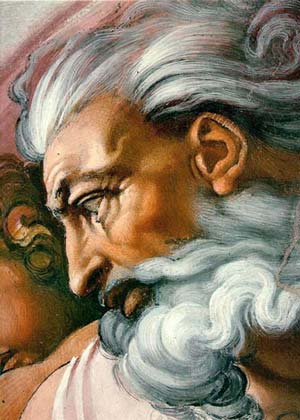Assistance to Suffering Humanity
 |
||
Liturgical feast in honour of God the Father |
“I desire that one day, or at least a Sunday, be dedicated to honouring Me in a special way under the title of Father of all Mankind. For this feast, I would like a special Mass and Office. It is not difficult to find the texts in the Holy Scriptures. If you prefer to offer Me this special devotion on a Sunday, I choose the first Sunday of August; if you prefer a weekday, I would like it to be always on the seventh day of the same month”. Many years ago we started a subscription to ask the Church for the institution of a liturgical feast in honour of God the Father and we collected a considerable number of signatures (over 100,000) which we then sent to the appropriate Church authorities. We find it appropriate to highlight what various people have written in this regard: H.E. Msgr. Caillot, Bishop of Grenoble, who instituted the canonical enquiry regarding Mother Eugenia and the Father’s Message which she received; his Vicar Msgr. Guerry, a member of the theological Commission that examined Mother Eugenia; P. Raniero Cantalamessa, Capuchin, Preacher of the Papal Household; P. Jean Galot sj, professor at the Pontifical Gregorian University: To make God the Father known and honoured by H.E. Msgr. Caillot: "The object of the mission which would appear to have been entrusted to Mother Eugenia is precise and, from the doctrinal point of view, I see it as legitimate and timely. Its precise object is to make God the Father known and honoured, mainly by the institution of a special feast which has been requested of the Church. The enquiry established that a liturgical feast in honour of the Father would be quite in keeping with Catholic practice as a whole. It would accord with the traditional trust of Catholic prayer, which ascends to the Father, through the Son, in the Spirit, as shown by the prayers of the Mass and the liturgical oblation to the Father during the Holy Sacrifice.(... ) A special feast would thus have the effect firstly of re-establishing order in the spirituality of many Christians and, secondly, of leading them back to the Divine Saviour's instructions: "Everything you ask the Father in My name…" and again "You will pray like this: 'Our Father…" read all>> Devotion to the Father, its appropriateness and its doctrinal value by Msgr. Guerry: “Devotion to the Father began with Jesus. How can it not be ours too? A feast for the Father by P. Raniero Cantalamessa “It’s sad that in the whole liturgical year there isn’t a feast dedicated to the Father, that in the whole Missal there isn’t even a votive Mass in His honour. Come to think of it, it’s very strange; there are many feasts dedicated to Jesus the Son; there is a feast of the Holy Spirit; there are many feasts dedicated to Mary… There isn’t a single feast dedicated to the Father, “source and origin of all divinity”. We could almost say that the Father, and no longer the Holy Spirit, is “the unknown divinity”. It’s true, there is the feast of the Holy Trinity, which, however, is the feast of a mystery, or a dogma and not of a person and, nevertheless, not of a single divine person. Besides, the fact that there is a feast of the Holy Family doesn’t make up for the fact that the Church may feel the need the celebrate, even individually, the three persons of the Holy Family. Couldn’t this be the moment to fill this gap?” read all >> The new devotion to the Father by P. Jean Galot: The number of special feasts dedicated to the saints has continued to grow, but up until now there is no feast day dedicated especially to the Father. We have observed that the new devotion which Jesus started consists of adoring the Father: and yet there is no day in which this adoration is directed more particularly to the person of the Father. The observation is all the more surprising when in today’s humanity there is a growing conviction of the importance of fatherhood. For an in-depth analysis: Jean Galot “Celebrate the Father. To know and celebrate God’s fatherhood”, ed. Dehoniane, Rome, 1999, first ed. French “Fêter le Père”, ed. Mame, Paris 1993. |
^^ On top ^^ | What is the Armata Bianca | | Consecration | | Children´s Prayer Nests | | First Communion | | God the Father | | Life | | Peregrinatio Mariae | | Assistance to Suffering Humanity | | The Armata Bianca in the world | | Contacts |
 In the message which the Father dictated to Mother Eugenia He asked for a feast to be established in His honour:
In the message which the Father dictated to Mother Eugenia He asked for a feast to be established in His honour: